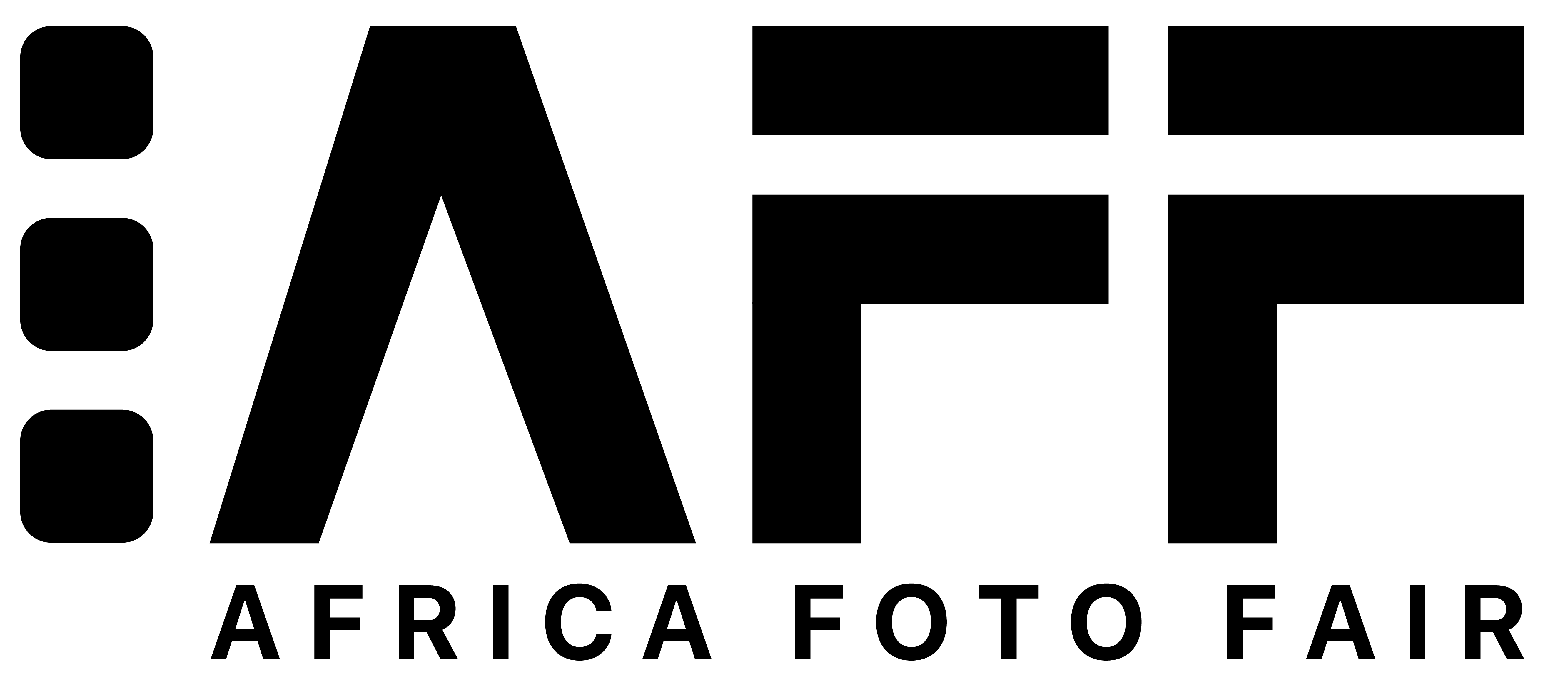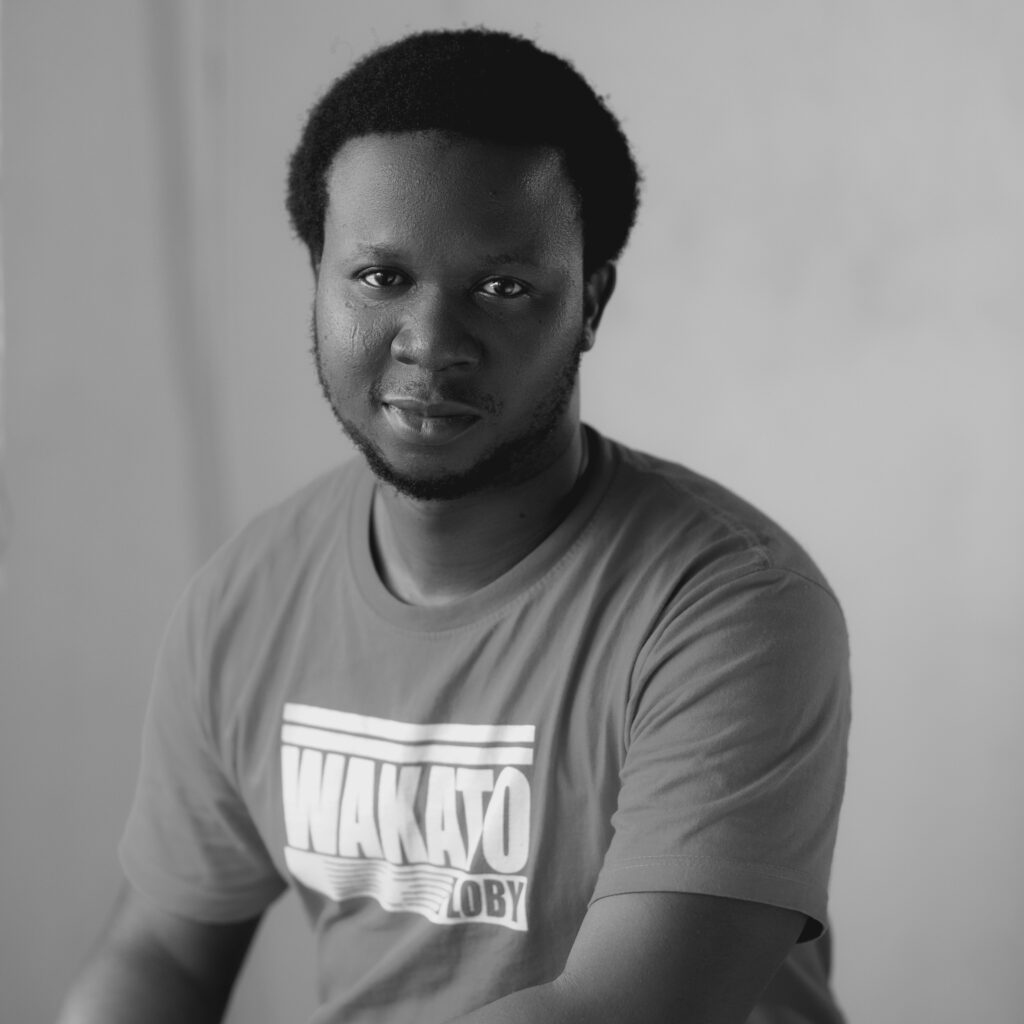An authentic image, for me, is an image that depicts the reality of a people without the intent to mock or glamourize it to make it suit a particular narrative/notion about that place.
Omoregie Osakpolor, Nigeria Tweet
Omoregie Osakpolor is an emerging documentary photographer and filmmaker living in Lagos, Nigeria. He received his BA (Hons) in English and Literature from the University of Benin, Edo State. He is presently a mentee at the Nlele Institute Mentorship Programme and a member of 1884 Collective. He was nominated for the Edwin George Prize for Photography at The Future Africa Awards in 2017.
Omoregie believes photography, and art generally can be a source for societal change and hopes to engage his audience and the society in general in cultural interactions. His work focuses primarily on social justice and culture. He has been referenced on CNN Africa, BBC, Quartz and by leading Nigerian blogs and art
journals and has shown his works in both solo and group exhibitions in Lagos, Abuja, Benin City, North Carolina, Fotohof, Salzburg, Bournemouth University (Arts By the Sea 2019), UK and at the 12th Bamako Biennale (2019). His short film, Grey which was partly inspired by Ed Kashi’s Aging in America, won the Fashola Photography Foundation Prize (2019)
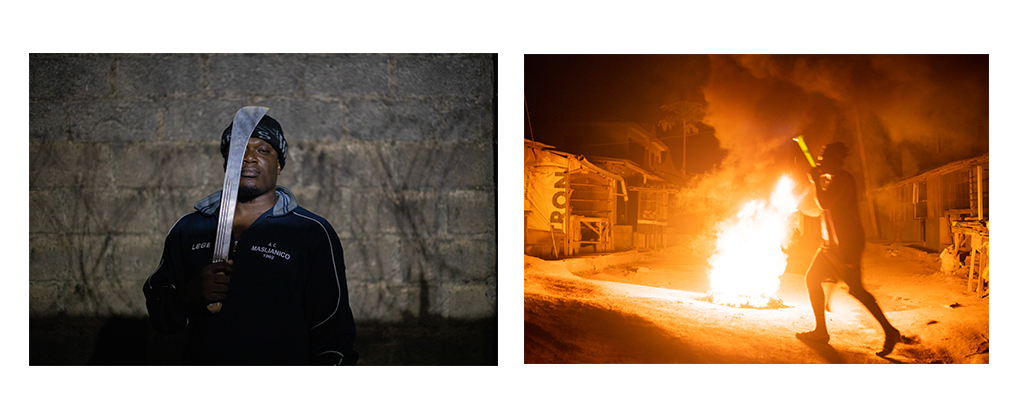
The stories and the people I photograph are real (and not performative), but I photograph them in the way I feel best reflects the story I want to tell. Since it’s their stories (though I somewhat share in them), I often let them make some decisions on how they want to be photographed— I ask questions like, “ do you want me to photograph you in these clothes or you want to change them?” This is why I call them participants rather than use the word, “subjects.” So, yes, the relationship between photojournalism and fine art photography in my work is in how I photograph my participants— it is in the capturing (in terms of the deliberateness of the compositional elements in the frames). This is the fine art part. While photojournalism requires capturing what you see as it is happening, fine art photography on the hand allows you to play around with elements in your frame (as long as you stay close to the “truth” of the story you are telling). In my work, I merge the elements of both. My work is documentary, but with a blend of fine art.
What is your process for finding unique stories?
I find stories everywhere— news, films, books (fictional and non-fictional), folktales—- just everywhere. But what piques my interests are social, political and cultural stories. Most times I am directly or indirectly connected to an issue and or people whose story I want to tell. This usually gives me a unique angle and deeper connection with the participants. And some level of accessibility. I first research by asking questions about the particular topic, person or people. I gather data from everywhere—- the internet, from television, from friends or their friends who are knowledgeable on that topic. Just anywhere. This is basically how I find my stories.
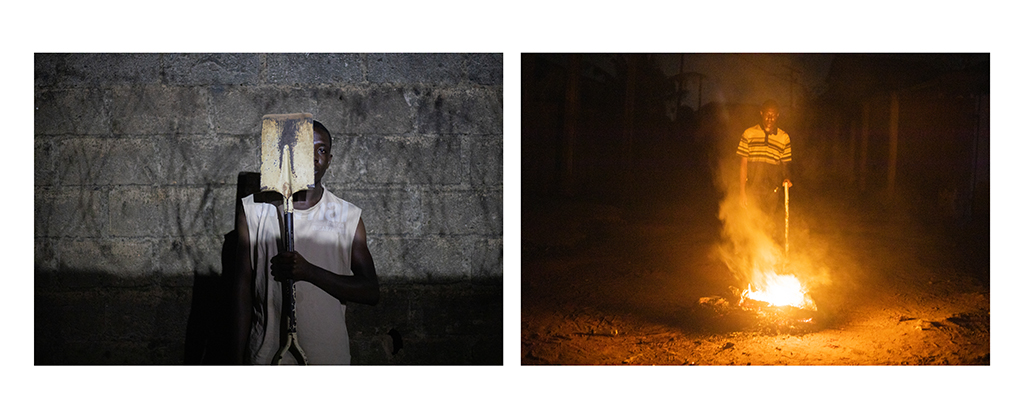
As a teenage boy I used to think I was going to change the world through social activism. It’s funny how that desire influenced my choice of course at the university. That course opened my mind to the power of storytelling and how stories can cause a change. So, when I finally picked up the camera after school, the desire to cause a change remained with me. I am not naive anymore to think I can change the world, but I believe I need to keep creating works that explore the social, political and economic reality of my country, Nigeria, to start conversations on issues that are less reported by mainstream media. Will my work change the world or Nigeria? I really can’t say. Will they spark up important conversations on important issues affecting us? Possibly. No matter the result, I know the works I am creating now are going to serve as historical documents—- they will tell our children how we lived and the challenges we are faced. So these are the things that motivate me to create.
How do you define an authentic image in a photo market where the foreign gaze shows us the one-sided story?
An authentic image, for me, is an image that depicts the reality of a people without the intent to mock or glamourize it to make it suit a particular narrative/notion about that place. In the case of Africa, it means photographing her people, places, issues and events from a place of
